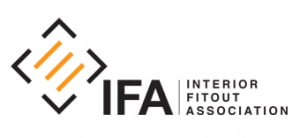How Protected Are You?
The Importance of protecting your assets and your family
Contributed by Ken Hows, Principal | Howes Accounting Services | howas.com.au

I recently had a new client contact me seeking advice on the protection of his family assets. With my client’s permission, I tell his story…
He has a reasonably new business having traded for only three years but had been employing up to 45 tradesmen on several different construction sites.
His company had accumulated super profits after tax of over $400,000 and enjoyed a respected status within the industry for on-time professional work.
Turnover was over $1M a month. Trade Debtors $1.4M, Supplier creditors $600,000 and other creditors, Super, GST, PAYGW were another $180,000.
Plant and Vehicles costing $200,000 were written down to $160,000 with $105,000 owing on finance contracts.
A family man, he and his wife had just acquired a family home and was doing the Australian thing of raising his young family.
The head contractor defaulted on a payment totalling $1.3M and the initial report is to expect a liquidator’s dividend of nothing.
His immediate questions were:
What do I do?
The advice was he couldn’t continue to trade in the existing company as that company was now insolvent.
What are his personal liabilities and other exposure as part of a domino effect on the head contractor’s default?
As his company’s sole director, is he liable for any unpaid employee superannuation and unpaid taxation liabilities?
He is responsible for any personal guarantees he has given his company’s creditors.
Any plant or vehicles that are subject to finance, risk a ‘fire sale’ and again he has personally guaranteed the contracts.
Any company bank overdraft is personally guaranteed, and the same bank holds a mortgage over the family home.
The lease on commercial premises may contain a personal guarantee.
Unpaid unrelated staff benefits can be covered by a Government grant established to assist employees who are left without employment.
No debtor insurance was in place.
Who owns the plant and materials on the abandoned building site?
Could the plant have been owned by another entity?
What can be done now and what could have been done to lessen the client’s family exposure?
Could the family home not be owned by a director?
Could the company bankers be a different bank to the family home mortgage creditor?
Could a super fund have owned the commercial premises?
Is a company the correct vehicle to trade in?
Can anything be recovered from the ‘no longer’ trading company?
Can the director continue to trade if he is declared bankrupt and can he still hold his necessary licences?
How can he continue to support his family and pay his home mortgage?
How does he travel to work? How do his wife and children travel?
But more importantly, how would you cope given the same circumstances.
What can you do to protect yourself and your family?
Action Plan
• Review your present business structure and consider the need for a change and the cost of any change.
• It is not unreasonable to start a new company for each major project.
• Reduce your spouse /child’s liability by excluding them from being a director.
• Do not give personal guarantees unless necessary.
• Take out Debtor Protection Insurance before starting a job and add the cost to the contract.
• Speak to your solicitor to ensure your contract and invoices have retention of ownership until paid clause.
• Consider the transfer of tangible assets to a separately owned structure.
• Hold family assets away from yourself. Consider a spouse or superannuation fund ownership.
• Ensure you know your profitability and cash flow position so you can budget the payment of your creditors and taxation commitments.
• Monitor your personal living expenses.
• Speak to your solicitor to ensure you and your spouse have appropriate wills and the enduring power of attorney documents.
• Consider the creation of a testamentary trust under your will.
Talk to a professional advisor to ensure you are protected.
For more information, contact Ken Howes on k**@**was.com.au

Leave a Reply
Want to join the discussion?Feel free to contribute!